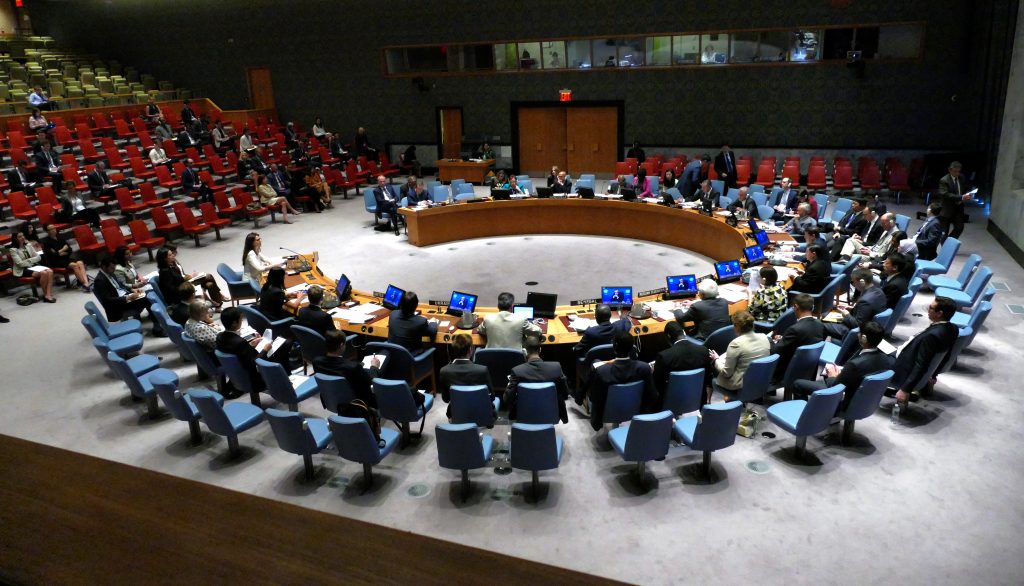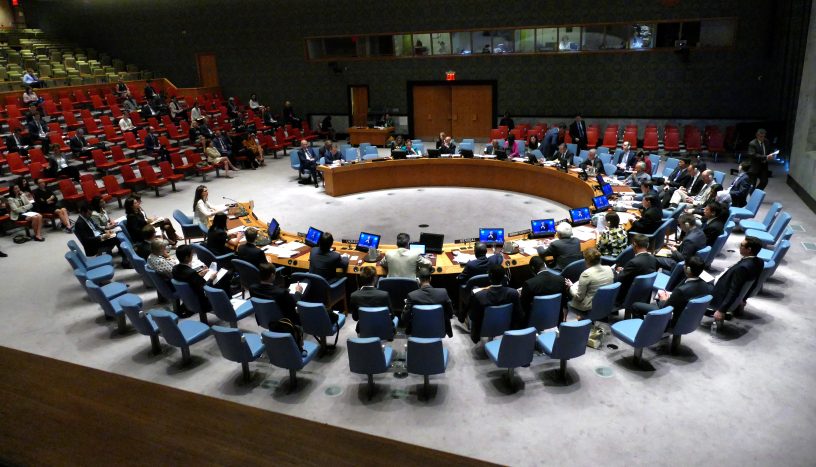
India has a moral responsibility to say more – and do more – to counter Putin’s Russia, argues the author.
Author
Deepanshu Mohan, Associate Professor of Economics and Director, Centre for New Economics Studies (CNES), Jindal School of Liberal Arts and Humanities, O.P. Jindal Global University, Sonipat, Haryana, India.
Summary
A lot is being said on India’s position in the UN on the Ukraine-Russia crisis. The position, thus far, has been broadly of ‘abstention’ and ‘silence’. The Indian government has also failed to explain the causal reasons for its repeated vote and its inability to call a spade-a-spade given how Russia’s military aggression in Ukraine is both unprovoked and in clear violation of basic tenets and principles of international law.
I argued recently that a prolonged ‘silence’ of India – and/or the inability of the Modi government to condone or condemn Russia’s actions in Ukraine – with each passing week may indirectly affect us (and our interests) in the longer term, despite the bonhomie we might share with Russia. If A’s friend commits murder and A maintains a position of ‘silence’ or gives the friend a free pass, what does it say about A and her/his moral character?
Yes, this isn’t India’s war. And, yes, maybe the Indian government, being late in evacuating its own citizens (given how late the advisories for evacuation were issued) didn’t have a choice but to be ‘silent’ for the first couple of weeks, given the administration had to work with both Russian and Ukrainian authorities to get its citizens out. That’s understandable.
But, once the evacuation of Indians is complete (as it is about to be), India’s geopolitical position of ‘silence’ will increasingly be questioned (in a way it already is). More importantly, India (like many other democratic nations) has a moral responsibility to say more – and do more – to counter Putin’s Russia.
To many ultra-realists/supporters of the pro-government position (there are many shouting in TV studios now), the very mention of the word ‘moral’ or ‘moral responsibility’ seems problematic.
Whataboutery has been common in the discourse too. Ultra-realists may argue what’s so special about condemning a great power for this crisis – or ask why India should support the West’s attack on Russian actions when Americans too have been guilty of intervening in other nations and having its own wars (from Vietnam to Iraq to Afghanistan).
Still, it would be morally obtuse to ‘compare’ one great power’s military aggression to another.
Published in: The Wire
To read the full article, please click here.


